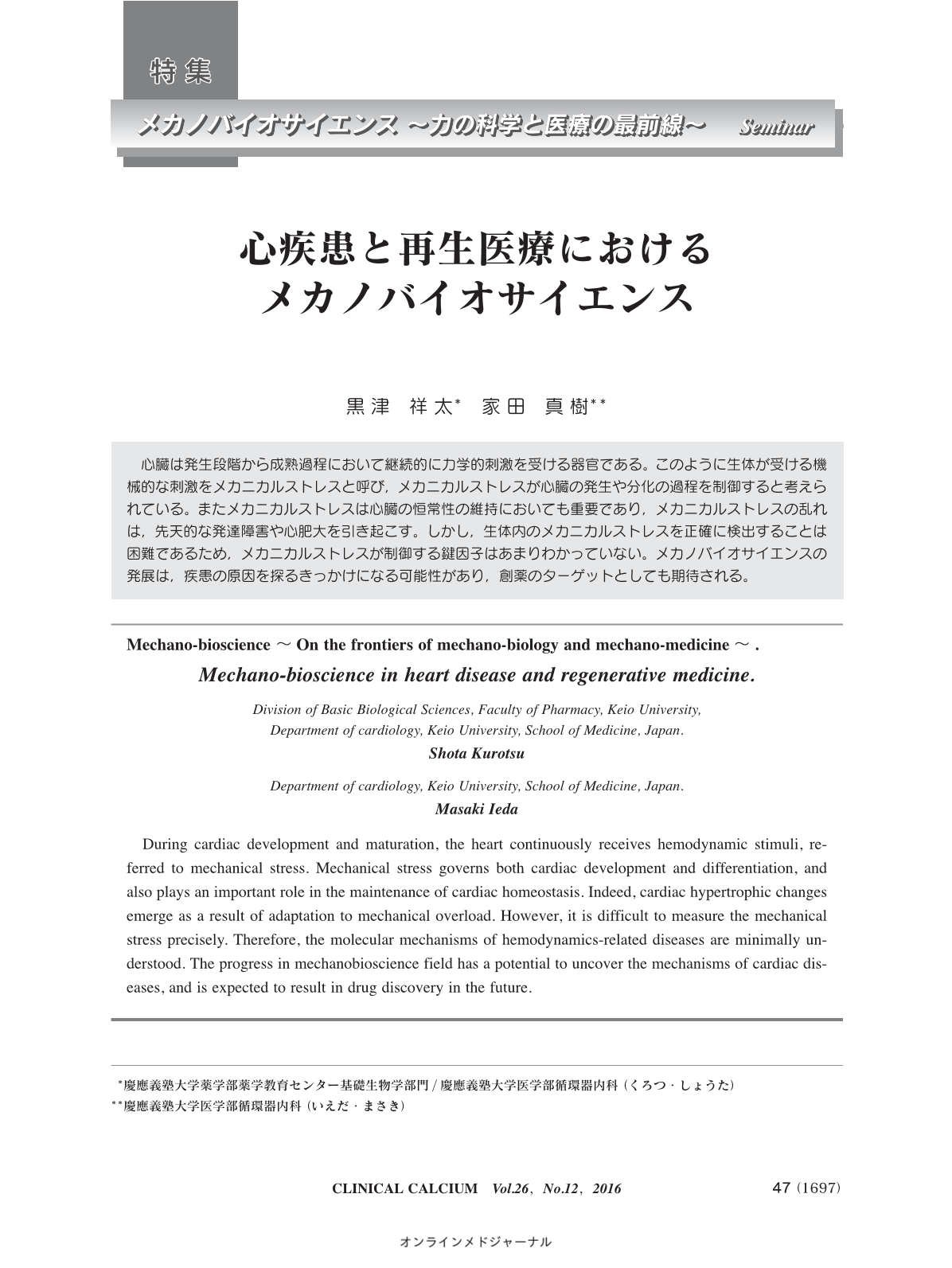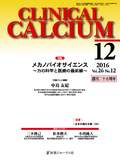Japanese
English
- 有料閲覧
- Abstract 文献概要
- 1ページ目 Look Inside
- 参考文献 Reference
心臓は発生段階から成熟過程において継続的に力学的刺激を受ける器官である。このように生体が受ける機械的な刺激をメカニカルストレスと呼び,メカニカルストレスが心臓の発生や分化の過程を制御すると考えられている。またメカニカルストレスは心臓の恒常性の維持においても重要であり,メカニカルストレスの乱れは,先天的な発達障害や心肥大を引き起こす。しかし,生体内のメカニカルストレスを正確に検出することは困難であるため,メカニカルストレスが制御する鍵因子はあまりわかっていない。メカノバイオサイエンスの発展は,疾患の原因を探るきっかけになる可能性があり,創薬のターゲットとしても期待される。
During cardiac development and maturation, the heart continuously receives hemodynamic stimuli, referred to mechanical stress. Mechanical stress governs both cardiac development and differentiation, and also plays an important role in the maintenance of cardiac homeostasis. Indeed, cardiac hypertrophic changes emerge as a result of adaptation to mechanical overload. However, it is difficult to measure the mechanical stress precisely. Therefore, the molecular mechanisms of hemodynamics-related diseases are minimally understood. The progress in mechanobioscience field has a potential to uncover the mechanisms of cardiac diseases, and is expected to result in drug discovery in the future.



